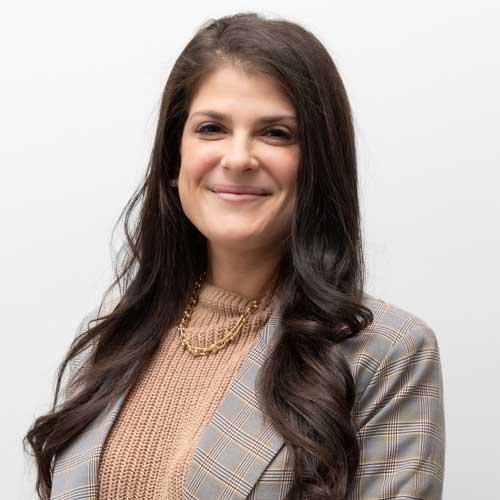Addiction rehabilitation demands flexibility. While working and raising children, Greenwich outpatient drug treatment helps individuals recover. This strategy lets people receive therapy without disrupting their lives, unlike inpatient rehab. Some find outpatient therapy the best balance between treatment and work, family, and friends. Its flexibility makes outpatient drug treatment ideal for those who wish to integrate recovery into their regular life.
1. Flexibility to Manage Everyday Life
Greenwich outpatient drug treatment offers a customizable approach, making it an excellent choice for many. Unlike inpatient rehab, outpatient programs allow individuals to live at home while attending therapy sessions. This flexibility enables people to schedule their treatment around work and family commitments. It’s particularly beneficial for those who cannot take extended time off due to career or family obligations.
Outpatient therapy provides a practical solution for those looking to balance recovery with other personal responsibilities, making it ideal for individuals with busy lives.
Key Advantages of Flexibility:
- Work-life balance: People in Greenwich outpatient rehab may work while receiving treatment. This avoids the financial burden of extended absences from work.
- Family obligations: While getting therapy, carers may continue to support their families.
- Personalized treatment plans: Outpatient rehab programs are tailored to fit each individual’s schedule and treatment needs, offering a flexible and manageable recovery path.
2. Access to Comprehensive Treatment
Greenwich’s outpatient drug rehab offers complete therapy without sacrificing quality. Individual therapy, group counselling, and holistic treatments, including meditation, yoga, and nutrition counselling, are all part of the programs. Individual therapy lets you talk to someone one-on-one about things that make you feel bad and how to deal with them.
Group therapy, on the other hand, helps you connect with other people and get support from them. Holistic therapies help people recover both emotionally and physically by focusing on their complete health. This all-around approach makes sure that people deal with both the mental and physical parts of addiction, which helps them stay sober for a long time.
Treatment Options Include:
- Individual Therapy: Focused sessions that address personal challenges and addiction triggers.
- Group Therapy: Supportive group environments that provide mutual understanding and camaraderie.
- Holistic Therapies: Techniques like yoga and nutrition counselling that aid in healing both the mind and body.
3. Cost-Effective Option
Outpatient drug treatment in Greenwich is cheaper than inpatient rehab, which frequently includes lodging and board. Many people struggle to recover due to rehab’s hefty costs.
Outpatient rehab enables patients to obtain therapy without overnight stays. Since patients live at home and just attend treatment sessions, the cost is far cheaper than inpatient programs.
Additionally, many outpatient treatment centres in Greenwich work with insurance providers or offer flexible payment plans, making treatment more accessible. This affordability, combined with the flexibility to maintain daily responsibilities like work and family commitments, makes outpatient drug rehab in Greenwich an excellent choice for individuals seeking recovery without the financial burden of inpatient care. It provides an effective treatment option that doesn’t disrupt everyday life while still addressing addiction.
Cost Benefits:
- Lower treatment costs: Patients simply pay for therapy sessions, not lodging or food.
- No lodging costs: Staying at home saves money on inpatient room and board.
- Flexible payments: Payment plans and insurance are available at many Greenwich rehab clinics, making treatment more affordable.
4. Strong Support System
Greenwich’s outpatient drug treatment has a strong support system that includes group therapy, family counselling, and ongoing aftercare services. These tools help individuals stay clean by making sure they receive the mental and emotional help they need. Patients may still obtain aid after they leave the program via follow-up therapy, 12-step meetings, and sober living circumstances. This continual aid keeps individuals on track with their recovery, builds a community of support and understanding, and helps them become friends with others who are going through the same things.
Conclusion
People who are serious about getting over their addiction may get flexible, cheap, and complete treatment at Greenwich’s outpatient drug rehab. Being able to keep working, taking care of family duties, and living at home while getting good treatment may make the transition to recovery much easier. If you or someone you care about is having trouble with addiction, outpatient treatment in Greenwich can be a good option for recovery.
Contact us today to learn more about outpatient drug rehab in Greenwich and how it can help you or your loved one on the path to recovery.
Sources
- https://www.niaaa.nih.gov/publications/brochures-and-fact-sheets/alcohol-facts-and-statistics
- https://www.cdc.gov/alcohol/about-alcohol-use/?CDC_AAref_Val=https://www.cdc.gov/alcohol/faqs.htm

Alexis earned both a B.S. in Psychology and a B.S. in Family and Child Sciences from Florida State University and an M.A. in Marriage and Family Therapy from the University of San Diego. She holds licenses in Marriage and Family Therapy in Florida, Connecticut, and Massachusetts and is also a member of the American Association for Marriage and Family Therapy (AAMFT).
Alexis works with families, couples, children, and groups and also has a sub-specialty in addiction and recovery. She utilizes an integrated, systemic approach to counseling; empowering people to define what is not working for them in their lives and to discover the possibilities for making life work. In doing this, clients are guided towards identifying their strengths, accessing their resources, tapping into their potential for success, and taking action toward achieving their desired goals.
Alexis also has extensive experience in the administration of behavioral health organizations. She has developed, built, and supervised several facilities encompassing all levels of care while leading them through state licensing and The Joint Commission accreditation process.

